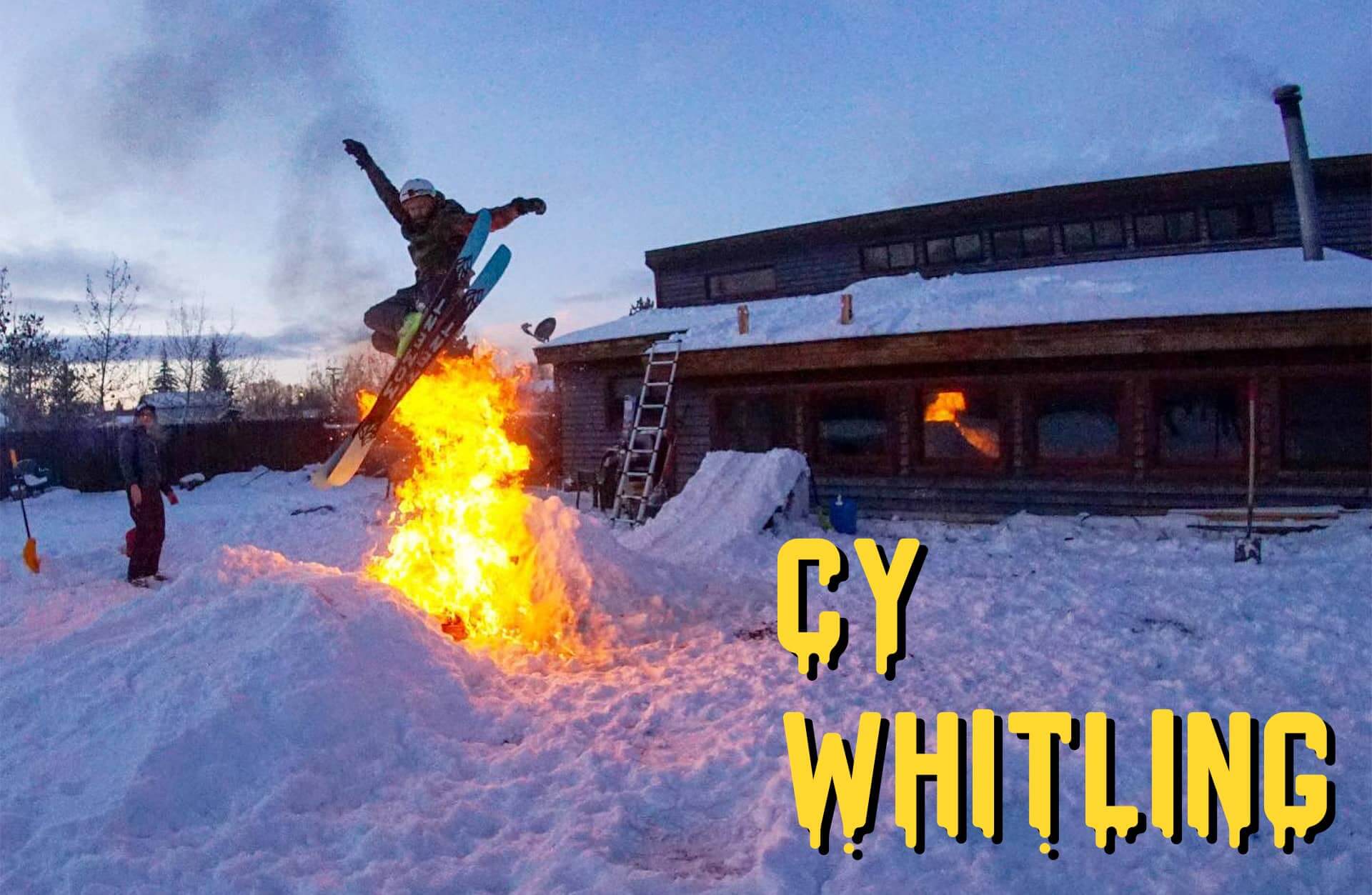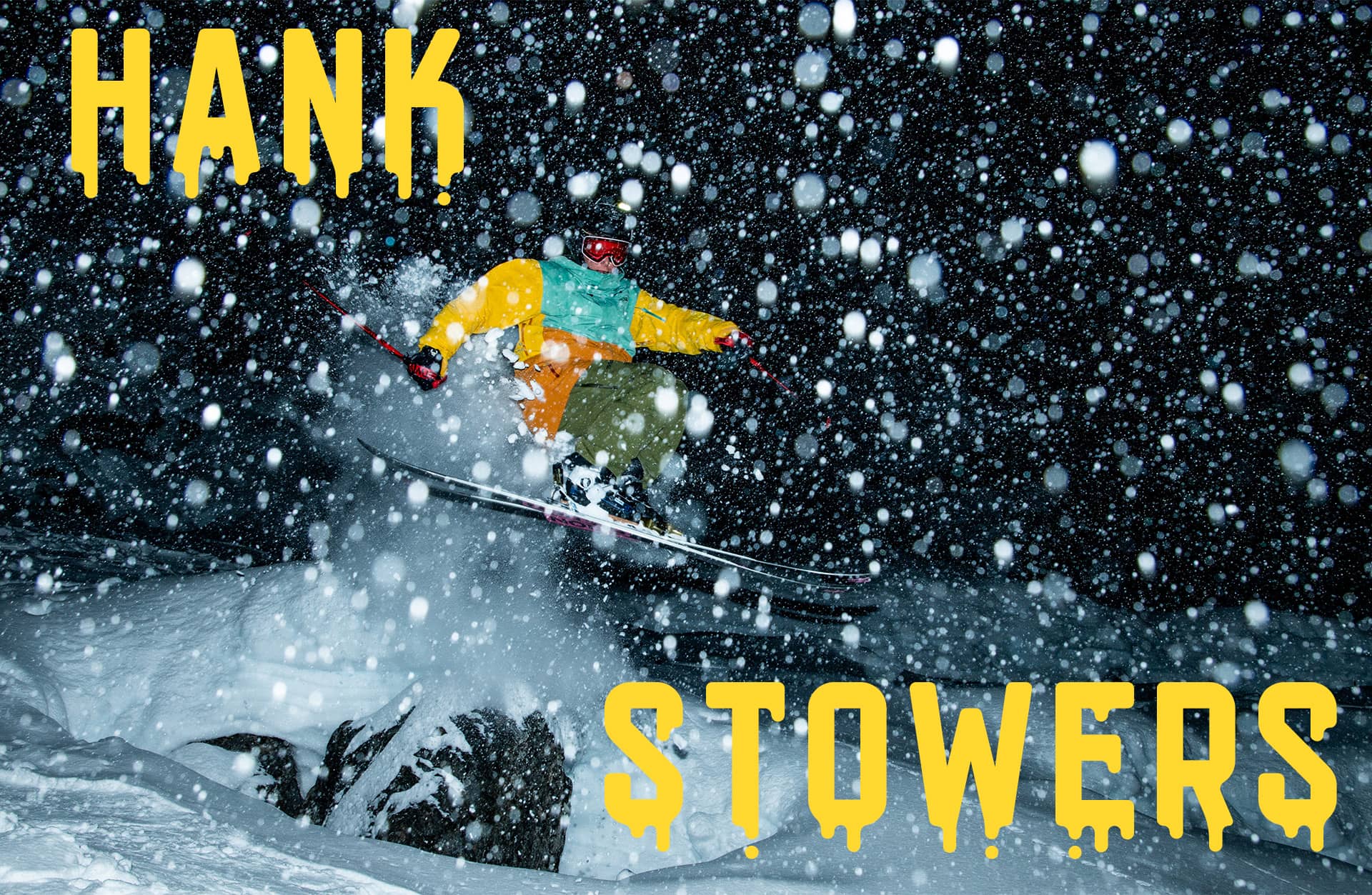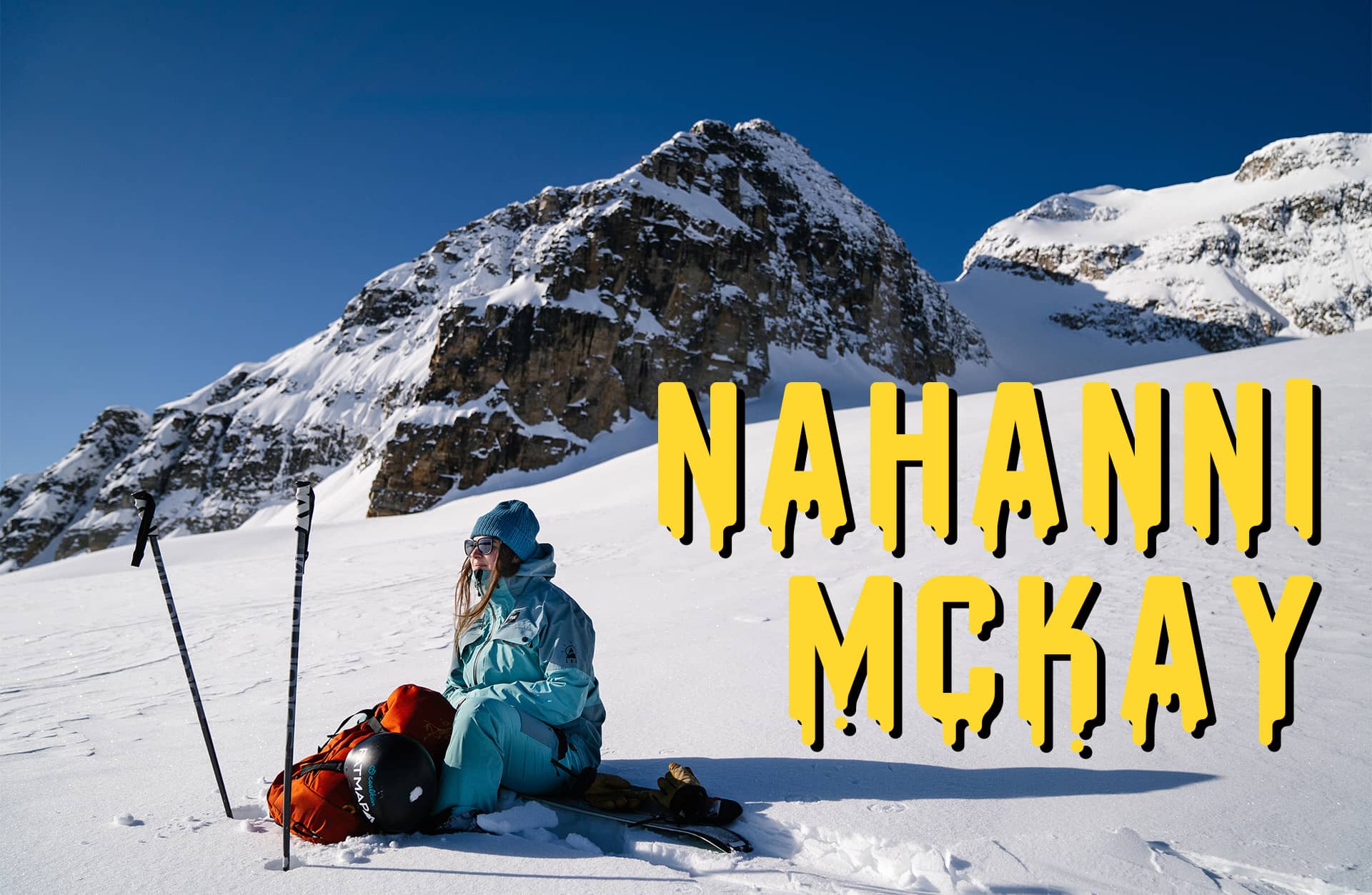SNOW // 01 DEC 2022
A JOURNEY TO EMPATHY
When raised in a Christian nationalist cult, homosexuality can mean only one thing. Eternal damnation. Church was everything for artist, photographer, and skier Cy Whitling, so the bisexual awakening he was experiencing, was going to be a bit of a problem. “Initially [I began to question my sexuality when I looked through] some books of classical art where it was just a bunch of naked people. I was like, man, naked people? It turns out I don’t care what kind of naked. What’s up, dudes? And not dudes and everyone else. Turns out I’m just into naked,” he laughed. “Then I was like, oh boy, this is all sinful. I’m screwed.”
The oldest of seven, Whitling was immersed in a community whose primary mission is summed up as “all of Christ for all of life”. It is a space where children are to be well-loved and well-disciplined to “stay the course”, living a sin free life. These teachings defined the framework of Whitling’s adolescence. Rampant homophobia and misogyny were encouraged, and sexuality in any orientation was shamed. “The way I was sold sexuality, in general, was that having any of it was sinful. The number of sermons I’ve heard against lust. Everything is against lust. I was definitely lusting,” he laughed. “The fact that [I was lusting] for everybody, not just for chicks, was a problem that was almost overshadowed by the fact that I was lusting [at all].”
This resistance to his sexuality was compounded by the derogatory stereotypes perpetuated by those around him. Whitling and his peers were encouraged to bully away any behavior deemed queer, reinforcing their teachings from church. Faced with the ugly portrait painted by those around him of what a queer person was meant to be, Whitling struggled to identify his own bisexuality within this false figure. If he embraced his bisexuality, who would he become? “I don’t read as queer to most people. Some of that’s the product of my upbringing, and some of that’s who I am,” explained Whitling. “It took me a [long time] to come to terms with [my perceptions of queerness] instead of being a homophobic dick, which I was for high school, and I still feel terrible about.”
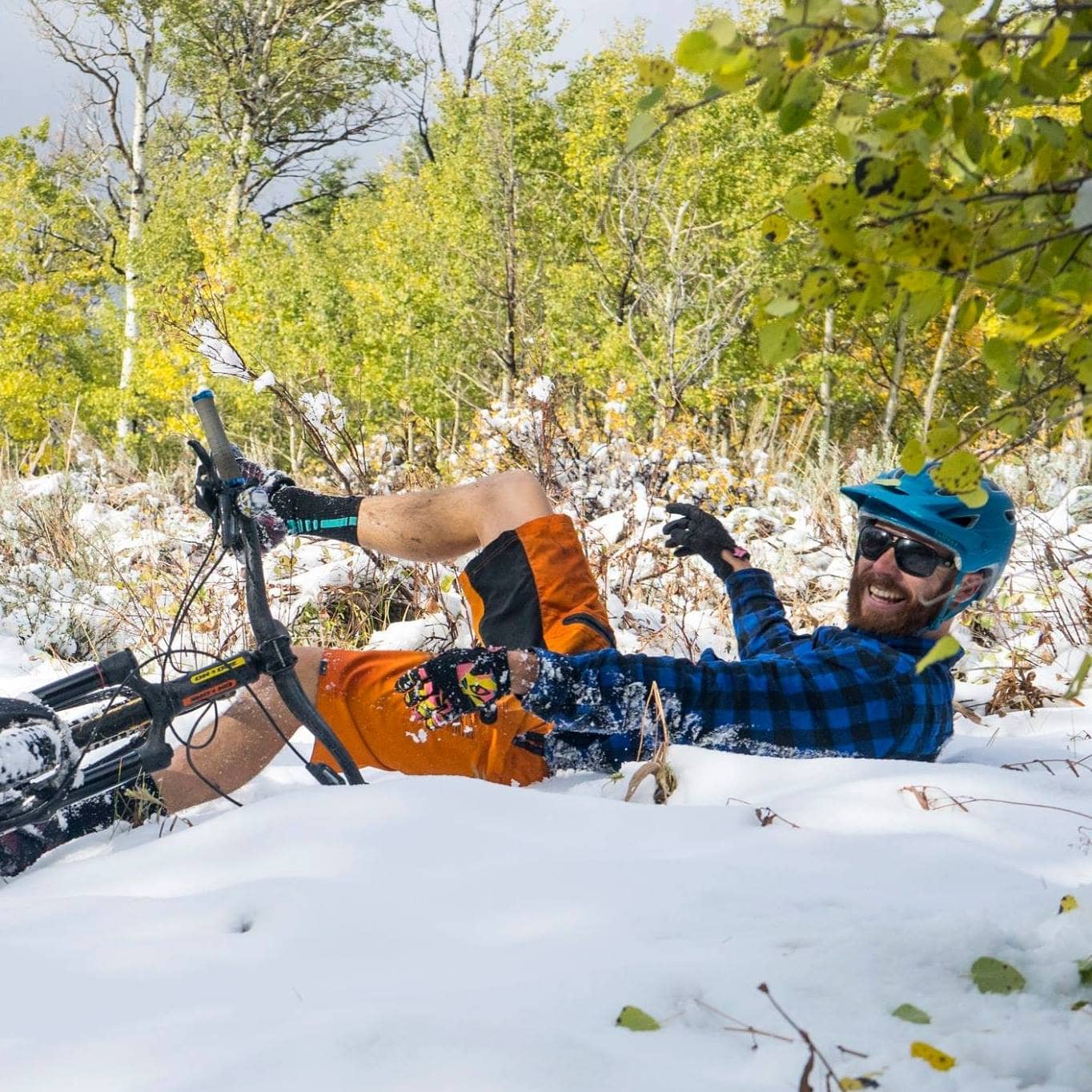
The map to begin Whitling’s quest for self-discovery and self-acceptance was hidden away in a pack of Nature Valley bars from Costco. More specifically it was a disc of Warren Miller highlights. Jam packed with skiing and snowboarding, middle school Whitling was immediately hooked on everything snowsports. It served as a guiding light of who he wanted to become.
Immersing himself in both ski and mountain bike culture in 8th grade, Whitling’s world expanded. “The first exposure I got to [the world] outside of church were these grassroots mountain bike races, where people were hitting the jumps in their underwear and shotgunning beers. I loved it,” he said. “At the same time I started to meet the first people that I knew outside of church through those sports, and became friends with them. I realized that they weren’t terrible people who wanted to hurt me. Many of them were kind, compassionate, and caring. [They] had more enthusiasm for life than many of the people I was surrounded [by at church].”
It was these initial connections that served as the first fissures in his learnt paradigm. As Whitling entered college, studying to become a mechanical engineer, the distance between the two disparate keystones of his life grew. The process accelerated when he was hired by the online ski community, New Schoolers.
Whenever Whitling traveled for work, he enmeshed himself further into the ski industry, he ate up every moment. However, with each successive trip, a new hole formed in what had once been his rock-solid beliefs. How could the people that brought so much joy into his life be evil? He summarized his internal discord at the time, “I love the mountains, I love skiing, I love the culture, I love the people, I love covering events. This makes me feel like me, I feel really at home here. I love all these people [but] all of these people are burning in hell forever.”
The diversity of his friend group increased and Whitling found himself constantly needing to add addendums to the strict doctrine of his childhood. The respect he had for the strong women he worked with, or the admiration for queer folks making important change. All of this he rationalized as “Well, they’re doing that despite being women or despite being queer, which is obviously awful [to think].”
By Sophomore year, the part of Whitling that had been shamed and smothered by his community was fed up and ready to be heard. He wanted out. So, he switched his degree to digital media broadcasting to better align with his interests and skipped town to Bozeman and later Teton Valley. It was time to re-evaluate what he wanted from life. In a state of constant flux, Whitling found comfort in the creativity he thought he’d left behind in childhood. Though instead of reenacting Lord of the Rings battles with legos, he drew. “I don’t have any art education,” he explained. “I’ve taken one watercolor class in high school because that was the slot for weight training, and watercolor was gay. Then, [when I moved], I started leaning into [my artistic side] as I [thought], I’m out of this town. I’m going to be a different person. I’m going to become something else.”
Driven by a desire for transformation, Whitling was forced to take a hard look at his beliefs. “The people who care about me, are compassionate to me, and listen to me, [they] see me as more than this one dimensional view that fundamentalist faith gives you. These people, some of them believe in some form of Christianity, [but] many of them are agnostic or atheist or on whatever other spectrum of spirituality. [I came] to realize that I trusted those people more than the people I grew up with. [Then I came] to realize that a lot of the influences that I’d grown up with had been abusive to children. I felt more at home [in mountain culture] than [in church].”
After years of reflection and education Whitling shed the stifling layers of dogma to form his own opinions on the world around him. His metamorphosis is evidenced in his writing for New Schoolers. While he still composes the occasional gear review and comic, a majority of his work now focuses on social issues. Whitling isn’t shy about the fact that he writes with an agenda, he explained, “Skiing showed me all these people that were empathetic, that listened, and were kind. It’s what got me out of that pretty terrible situation. I feel obliged to try and make [ski culture] better. It helped me so much, so how can I help other people? How can skiing be better for trans homies? How can skiing be better for people of color? That goes for mountain biking and all outdoor sports. That’s where my heart is a lot.”
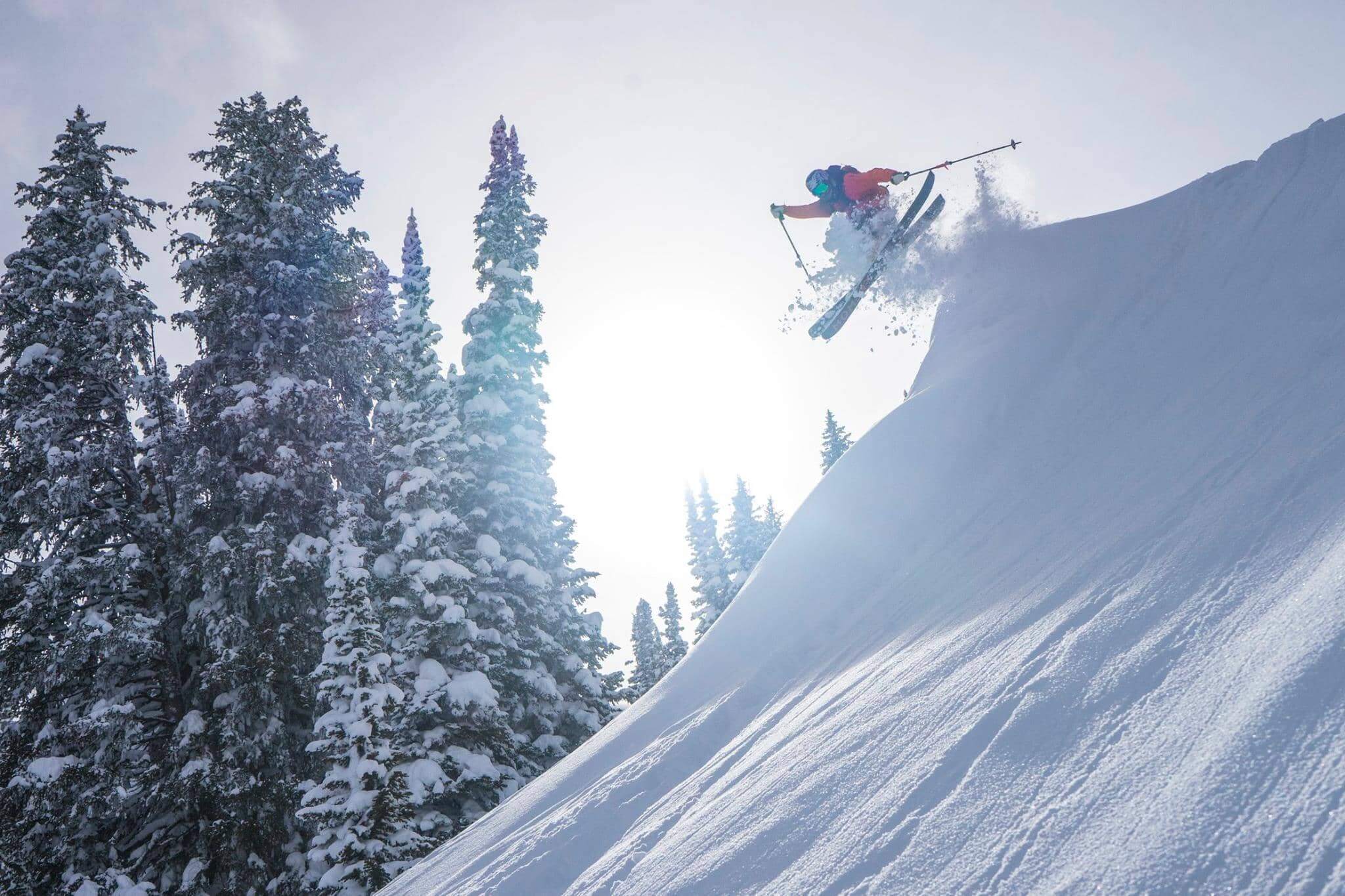
Whitling is particularly concerned about backcountry safety. An activity fraught with risk, his articles drill home the importance of good communication to reduce potential dangers when backcountry skiing. “If you’ve taken an [avalanche] (avy) one or any avy class, a good teacher will point out that men and women have really different communication styles and men’s communication styles steamroll women and lead us to making bad decisions that leave us dead,” he explained. “I’ve been trying to cultivate thinking more like a woman or think [less] like someone who’s been told to be confident and powerful all of their life. It’s something I’m always going to be aspiring to do.”
Branching away from the anticipated New Schoolers content structure is always met with some resistance. Readers want social justice out of their skiing. Many comments hound Whitling to go back to California where his liberal bull belongs. “I always find that pretty amusing,” he said. “Where it’s like, shit man. Whatever weird brand of right wing sketchiness that you believe, I believed [in something] more [crazy] than that. I was fully in a culture that thought you were going to hell because you were too liberal. I was in that [culture] all [through my childhood]. I came by these beliefs [I write about] pretty honestly. So yeah, tell me more about how I’m just another social justice warrior. Shit man. You can come by empathy honestly too. You don’t have to be raised in it.”
He continued, “Coming out has been awesome because it’s given me a community of bisexual people, and other flavors of queer people, who I can talk to, learn from, and be mentored by. Being like, okay. You are a person who seems similar to me who said he’s bisexual. How’s that working out for you? What should I know? [These] are some of the best conversations I’ve ever had.”
This new way of thinking has also helped Whitling when he is working with other athletes as a photographer. By being flexible and empathetic to the athlete’s emotional state, a baseline trust is established. Which for Whitling, has led to better experiences and better photos. “I think it’s really important as a photographer to have a good vibe for the project. You’re all trying to work together and bringing heady masculine vibes is often not the call.”
Opening himself up has given Whitling new insight into the world around him and allowed him to embrace his bisexuality, and the struggles that come with it. “I’m married to a woman. We go to things and we look like the stereotypical ski town couple, right? You got a dude in a beard and a woman in a sundress,” said Whitling, describing how, to many folks in his conservative town, he reads as straight. “So there’s a little bit of a challenge of, I am in love with this person, this is my person, I’m going to be with them forever. Also I’m bisexual. There’s this whole dimension to my life and my existence that isn’t portrayed [when someone] sees me on the street.”
After years of flying under the radar he now feels an obligation to nonverbally establish his queerness in these conservative, male dominated spaces. Something as simple as wearing nail polish on a search and rescue mission will earn Whitling a few dirty looks. But it is through those conflicts that he hopes to normalize diversity in outdoor spaces. As he said, “I am putting on the uniform today, even though I don’t feel any gayer than I did yesterday.”
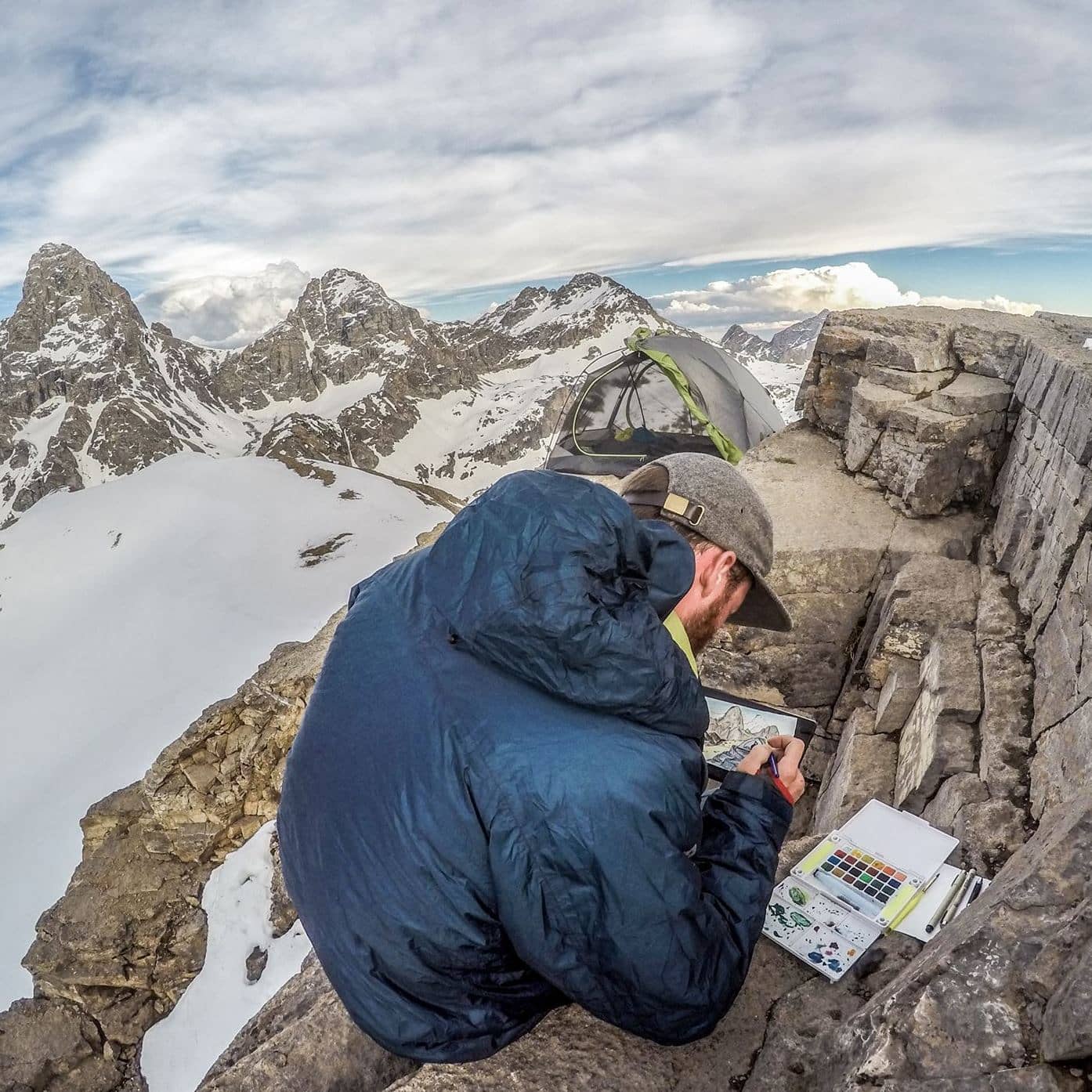
Accompanying this personal growth is Whitling’s artistic growth. Wholly self-taught, he’s spent the last seven years researching techniques, and in the last two years, made the leap to pursuing a freelance career full-time. Whitling’s unique style is heavily influenced by Lord of the Rings, the Tolkien translated version of Beowulf, and the illustrations found in Rosemary Sutcliff’s retellings of the Odyssey and the Iliad. Applying this fantastical lens to the world, Whitling’s illustrative work captures the transcendent sensation felt when surrounded by mountains.
Giving a peek into his imagination, Whitling explained, “Every time I’m skinning in the dark early morning, I’m imagining giant spiders, crazy stuff happening around me. Whatever is just outside of that headlamp glow is probably out of this world. So, I draw it, and people don’t seem to mind too much.”
Storytelling is a cornerstone in Whitling’s oeuvre, more obviously so in his comics, but there is also careful craft put into his standalone work to convey a narrative. He will ask himself, “Where did this person come from? Where are they going? Can we give an idea of their objective and their background in their kit or their posture? What kind of person would be fighting a giant ice spider deep in the mountains? How would they get there? Well, I wouldn’t do it on Shift [bindings].”
Constantly exploring different mediums, Whitling has found that his ideal workflow is to create his line work digitally and render through more traditional, unpredictable means. This variability is essential. Describing his desire to finish his meticulous line art with unknowable factors he laughed, “Inside me are two wolves, a chaotic bisexual and a mechanical engineer.”
He continued, “When I examine it, so much of my life is that intersection of intense precision, design, engineering and craftsmanship, and then the ineffable. The thing that makes one skier’s style great and the other skier’s style bad when they make the same turn or do the same trick. I think that’s the thing that I can capture. The things that you can’t measure with calipers. [Objects] engineered to be predictable combined with the unpredictable beauty of every facet of existence. I find that fascinating in art, skiing, and mountain biking.”
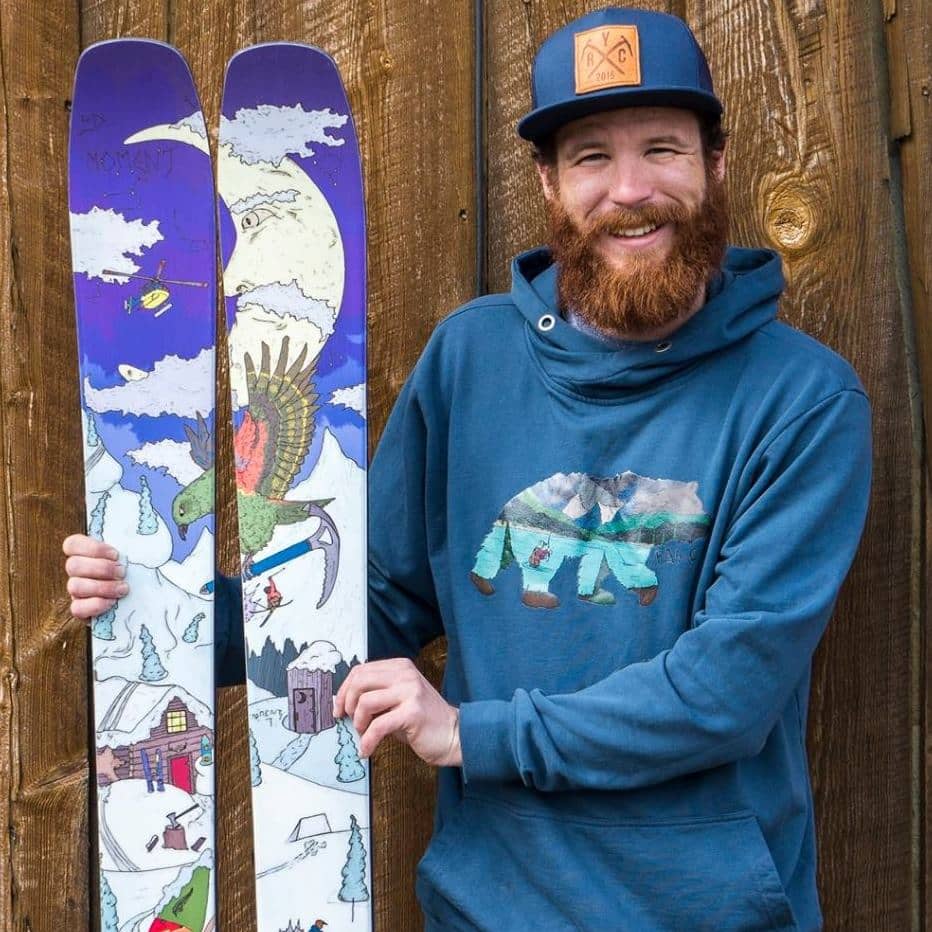
Envisioning the projects to come, Whitling plans to continue creating his Instagram comics, but also hopes to dive into more extensive work, as he explained, “The stuff that makes me really happy is when I’m deep in a project for a week or two and come out with something that pushed me, exhausted me, and made me learn new things.”
Whitling has also set a goal to create more media that supports the queer community. “At this point I would like to do some projects that help amplify more marginalized folks in skiing,” he said. “I don’t have concrete ideas for how it’s going to look yet, but I feel like there’s been more cool stuff coming out in that regard that I’m excited about and I want to try and help those people selfishly.”
The journey from a surpressed boy in a religious cult to a proud bisexual man was a long and winding road for Whitling, instigated by a one chance purchase from Costco. However, it was the continued support of his found community of outdoor athletes that carved out the space for Whitling to define not only his sexuality, but his sense of self. It is a daunting task. Seemingly insurmountable to those looking to take the first steps. To that person at the beginning of figuring themselves out, young or old, Whitling has this advice, “You don’t need to live up to any stereotypes or expectations. That’s not your job. You’ve got a lot going on in your life. There’s so much happening. Don’t worry about if you’re queer enough or straight enough or any of that. There will be time and space for you to grow into that. Do things that make you happy and that you think make the world better.”
